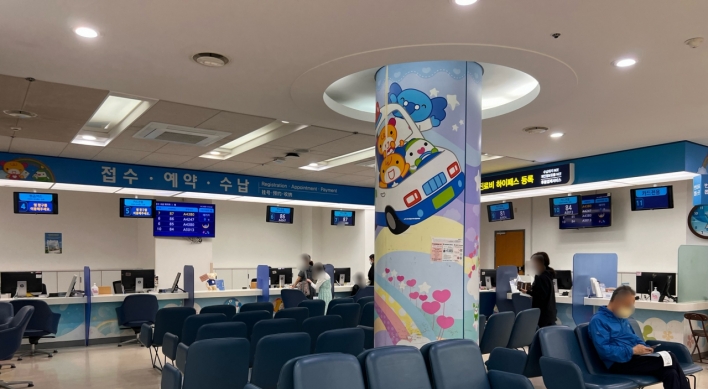Korean aviation, oil industries brace for impact of EU’s green jet fuel mandate
By Kim Byung-wookPublished : July 20, 2021 - 17:19

As the European Union aims to impose a new tax on aviation fuel and require all flights within its borders to use a certain amount of sustainable aviation fuels, or SAFs, major South Korean refineries are watching closely whether the initiatives will jump-start a new market for green jet fuels.
According to a climate package announced by EU last week, free emitting permits for air carriers will disappear after 2026 and a tax on kerosene -- the most common jet fuel -- will be gradually introduced. Also, all airlines operating in and from the EU will be required to use at least 5 percent of SAFs in 2030 and 62 percent by 2050.
For Korea’s two national flag carriers who together spent 5 trillion won ($4.6 billion) on fuel last year, the EU’s aggressive policies can potentially drive up their fuel costs by tens to hundreds of billions of won, as SAFs are at least as twice as expensive than typical aviation fuels, according to the Korea Energy Economics Institute.
To secure its own supply of SAFs, Korean Air recently joined hands with Hyundai Oilbank to manufacture and commercialize the green jet fuels. In Korea relies solely on foreign imports of SAF supplies as it does not produce any of its own.
“SAFs, which are made up of grains, plants, algae and animal fats, can reduce a flight’s carbon emissions by up to 80 percent, but are three times more expensive than existing aviation fuel. However, as aircraft operations contribute to 2 to 3 percent of global emissions, the growing aviation industry’s strategy to tackle climate change is critical,” a Korean Air official said.
Korea as well as non-EU states are holding their breath and monitoring the EU’s next move closely, as they are exempt from the EU’s aviation regulations thanks to a loophole, for now.
“The policies only apply to flights that both take off and land inside the EU. A flight from Seoul to Paris or vice versa will be exempt from the rules, for example. But the EU might apply the system to a third country in the future, so nobody knows,” an aviation industry official said.
The official added that implementing the policies to non-EU nations is not an easy task as it would create diplomatic frictions. In 2012, the EU attempted to charge carbon emission rights to flights that fly across its airspace, but the plan was met by a fierce resistance from powerful nations such as China.
An official from SK Innovation offered a conservative view, saying that the EU’s new aviation rules won’t have an impact unless it is applied globally, just like the International Maritime Organization last year limited the sulfur content of ships’ fuel oil.
Hyundai Oilbank on the other hand says the global transition to SAFs has already begun.
“The SAFs haven’t been commercialized yet because it’s actually cheaper to purchase carbon emission rights than to use SAFs. However, preparations must be made as a global offsetting scheme called the carbon offsetting and reduction scheme for international aviation, or Corsia, will become mandatory starting 2027,” a Hyundai Oilbank official said.
Corsia is a mechanism designed and led by the United Nations’ International Civil Aviation Organization in achieving carbon-neutral growth for international flights after 2020. The mechanism becomes mandatory starting 2027 for all ICAO member states including Korea.
From then, airlines will have to buy emissions reduction offsets from other sectors to compensate for any increase in their own emissions or they can use lower carbon fuels that meet Corsia standards.





![[Grace Kao] Hybe vs. Ador: Inspiration, imitation and plagiarism](http://res.heraldm.com/phpwas/restmb_idxmake.php?idx=644&simg=/content/image/2024/04/28/20240428050220_0.jpg&u=)
![[Herald Interview] Mom’s Touch seeks to replicate success in Japan](http://res.heraldm.com/phpwas/restmb_idxmake.php?idx=644&simg=/content/image/2024/04/29/20240429050568_0.jpg&u=)


![[News Focus] Lee tells Yoon that he has governed without political dialogue](http://res.heraldm.com/phpwas/restmb_idxmake.php?idx=644&simg=/content/image/2024/04/29/20240429050696_0.jpg&u=20240429210658)








![[Today’s K-pop] Seventeen sets sales record with best-of album](http://res.heraldm.com/phpwas/restmb_idxmake.php?idx=642&simg=/content/image/2024/04/30/20240430050818_0.jpg&u=)